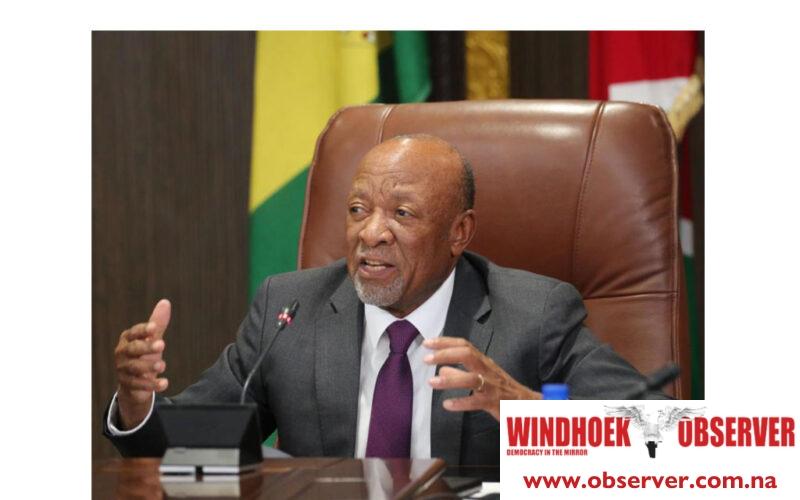Niël Terblanché
President Nangolo Mbumba, upon returning from high-level diplomatic missions during a special meeting at State House on Thursday briefed the nation about Namibia’s expanding role in global diplomacy and sustainable development.
His report followed his return from the 79th Session of the United Nations General Assembly (UNGA) and the Hamburg Sustainability Conference, where Namibia positioned itself as a key advocate for multilateralism, climate action, and economic reform.
At the UNGA, President Mbumba co-facilitated the Summit of the Future alongside German Chancellor Olaf Scholz.
“The summit, focused on advancing peace, sustainable development, and human dignity, resulted in the adoption of the Pact for the Future,” he said.
Mbumba reiterated that the pact is not legally binding but provides a framework to tackle global challenges, including climate change, innovation, and transforming governance.
Amid questions surrounding Namibia’s role in co-chairing the summit, Mbumba reassured citizens that the pact serves as a guideline for governments to accelerate the implementation of Sustainable Development Goals (SDGs).
“This is a non-binding agreement, but an opportunity to explore how global challenges can be addressed collectively,” he said.
Namibia’s rising prominence in climate action was also emphasised during Mbumba’s participation in the Hamburg Sustainability Conference.
According to the president, Namibia’s leadership in renewable energy, particularly green hydrogen, was presented as a central pillar in the nation’s fight against climate change.
The president’s engagements with world leaders, including Chancellor Scholz, the Managing Director of the International Monetary Fund, Kristalina Georgieva, and Ajay Banga, the World Bank President, further pushed for reforms in the international financial system to better accommodate developing nations.
In his report, President Mbumba also touched on sensitive bilateral discussions with Germany regarding the Joint Declaration on Genocide, Apology, and Reparations.
He assured the Namibians that progress was made, with both governments committed to resolving the issue in the interests of Namibia’s affected communities.
Mbumba thanked Namibia’s international partners, emphasizing that Namibia’s missions abroad are essential for national development.
He said his visits to Spain and Germany, along with the work at the UNGA, strengthened the country’s strategy to build resilient international partnerships, secure investment, and foster economic transformation.
“We cannot develop without nurturing partnerships,” he said while also acknowledging the essential role of multilateral diplomacy and cooperation in achieving Namibia’s goals.




